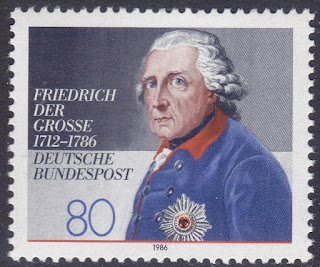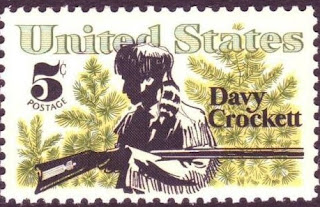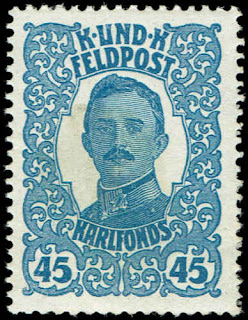Here are some events that happened on August 17th. It could be an event or a person that died or was born on that day
1786 Died: Frederick the Great, Prussian king (b. 1712)
Frederick II (German: Friedrich II.; 24 January 1712 – 17 August 1786) ruled the Kingdom of Prussia from 1740 until 1786, the longest reign of any Hohenzollern king at 46 years. His most significant accomplishments during his reign included his military victories, his reorganization of Prussian armies, his patronage of the arts and the Enlightenment and his success in the Seven Years' War. Frederick was the last Hohenzollern monarch titled King in Prussia and declared himself King of Prussia after achieving sovereignty over most historically Prussian lands in 1772. Prussia had greatly increased its territories and became a leading military power in Europe under his rule. He became known as Frederick the Great (German: Friedrich der Große) and was nicknamed Der Alte Fritz ("Old Fritz") by the Prussian people and eventually the rest of Germany.
In his youth, Frederick was more interested in music and philosophy than the art of war. Nonetheless, upon ascending to the Prussian throne he attacked Austria and claimed Silesia during the Silesian Wars, winning military acclaim for himself and Prussia. Toward the end of his reign, Frederick physically connected most of his realm by acquiring Polish territories in the First Partition of Poland. He was an influential military theorist whose analysis emerged from his extensive personal battlefield experience and covered issues of strategy, tactics, mobility and logistics.
Frederick was a proponent of enlightened absolutism. He modernized the Prussian bureaucracy and civil service and pursued religious policies throughout his realm that ranged from tolerance to segregation. He reformed the judicial system and made it possible for men not of noble status to become judges and senior bureaucrats. Frederick also encouraged immigrants of various nationalities and faiths to come to Prussia, although he enacted oppressive measures against Polish Catholic subjects in West Prussia. Frederick supported arts and philosophers he favored as well as allowing complete freedom of the press and literature. Most modern biographers agree that Frederick was primarily homosexual. Frederick is buried at his favorite residence, Sanssouci in Potsdam. Because he died childless, Frederick was succeeded by his nephew Frederick William II.
Nearly all 19th-century German historians made Frederick into a romantic model of a glorified warrior, praising his leadership, administrative efficiency, devotion to duty and success in building up Prussia to a great power in Europe. Historian Leopold von Ranke was unstinting in his praise of Frederick's "heroic life, inspired by great ideas, filled with feats of arms ... immortalized by the raising of the Prussian state to the rank of a power". Johann Gustav Droysen was even more extolling. Frederick remained an admired historical figure through Germany's defeat in World War I. The Nazis glorified him as a great German leader pre-figuring Adolf Hitler, who personally idolized him.
Associations with him became far less favorable after the fall of the Nazis, largely due to his status as one of their symbols.
However, historians in the 21st century now again view Frederick as one of the finest generals of the 18th century, one of the most enlightened monarchs of his age and a highly successful and capable leader who built the foundation for the Kingdom of Prussia to become a great power that would contest the Austrian Habsburgs for leadership among the German states.
German stamps depicting Frederick the Great
1786 Born: Davy Crockett, American soldier and politician (d. 1836)
David Crockett (August 17, 1786 – March 6, 1836) was an American folk hero, frontiersman, soldier, and politician. He is commonly referred to in popular culture by the epithet "King of the Wild Frontier". He represented Tennessee in the U.S. House of Representatives and served in the Texas Revolution.
Crockett grew up in East Tennessee, where he gained a reputation for hunting and storytelling. He was made a colonel in the militia of Lawrence County, Tennessee and was elected to the Tennessee state legislature in 1821. In 1827, he was elected to the U.S. Congress where he vehemently opposed many of the policies of President Andrew Jackson, especially the Indian Removal Act. Crockett's opposition to Jackson's policies led to his defeat in the 1831 elections. He was re-elected in 1833, then narrowly lost in 1835, prompting his angry departure to Texas (then the Mexican state of Tejas) shortly thereafter. In early 1836, he took part in the Texas Revolution and was "likely" executed at the Battle of the Alamo after being captured by the Mexican Army.
Crockett became famous during his lifetime for larger-than-life exploits popularized by stage plays and almanacs. After his death, he continued to be credited with acts of mythical proportion. These led in the 20th century to television and movie portrayals, and he became one of the best-known American folk heroes.
1887 Born: Charles I of Austria (d. 1922)
Charles I or Karl I (Karl Franz Joseph Ludwig Hubert Georg Otto Maria; 17 August 1887 – 1 April 1922) was the last Emperor of Austria, the last King of Hungary (as Charles IV, Hungarian: IV. Károly), the last King of Bohemia (as Charles III, Czech: Karel III.), and the last monarch belonging to the House of Habsburg-Lorraine before the dissolution of Austria-Hungary. The son of Archduke Otto of Austria and Princess Maria Josepha of Saxony, Charles became heir presumptive of Emperor Franz Joseph after his uncle Archduke Franz Ferdinand of Austria was assassinated in 1914. In 1911, he married Princess Zita of Bourbon-Parma.
Charles succeeded to the thrones in November 1916 following the death of Franz Joseph. He made secret attempts to negotiate Austria-Hungary's exit from the First World War but was unsuccessful. Despite Charles' intention to preserve the empire by transforming it into a federal union, Austria-Hungary headed rapidly towards complete dissolution; Czechoslovakia, the State of Slovenes, Croats and Serbs were proclaimed and Hungary declared to cease her monarchic ties to Austria by the end of October 1918. Following the Armistice of 11 November 1918, Charles "renounced participation" in state affairs, but did not abdicate. The Republic of German-Austria was proclaimed the following day, and in April 1919 he was formally dethroned by the Austrian Parliament and exiled to Switzerland.
Charles spent the remaining years of his life attempting to restore the monarchy. He made two attempts to reclaim the Hungarian throne in 1921; both failed due to a lack of support from Hungary's regent Miklós Horthy. Charles was exiled for a second time to the Portuguese island of Madeira, where he soon fell ill and died of respiratory failure in 1922.
Beatified by Pope John Paul II in 2004, Charles is known to the Catholic Church as Blessed Karl of Austria
Austrian military stamps and Bosnian stamps depicting Karl I
Charles succeeded to the thrones in November 1916 following the death of Franz Joseph. He made secret attempts to negotiate Austria-Hungary's exit from the First World War but was unsuccessful. Despite Charles' intention to preserve the empire by transforming it into a federal union, Austria-Hungary headed rapidly towards complete dissolution; Czechoslovakia, the State of Slovenes, Croats and Serbs were proclaimed and Hungary declared to cease her monarchic ties to Austria by the end of October 1918. Following the Armistice of 11 November 1918, Charles "renounced participation" in state affairs, but did not abdicate. The Republic of German-Austria was proclaimed the following day, and in April 1919 he was formally dethroned by the Austrian Parliament and exiled to Switzerland.
Charles spent the remaining years of his life attempting to restore the monarchy. He made two attempts to reclaim the Hungarian throne in 1921; both failed due to a lack of support from Hungary's regent Miklós Horthy. Charles was exiled for a second time to the Portuguese island of Madeira, where he soon fell ill and died of respiratory failure in 1922.
Beatified by Pope John Paul II in 2004, Charles is known to the Catholic Church as Blessed Karl of Austria
Austrian military stamps and Bosnian stamps depicting Karl I







No comments:
Post a Comment